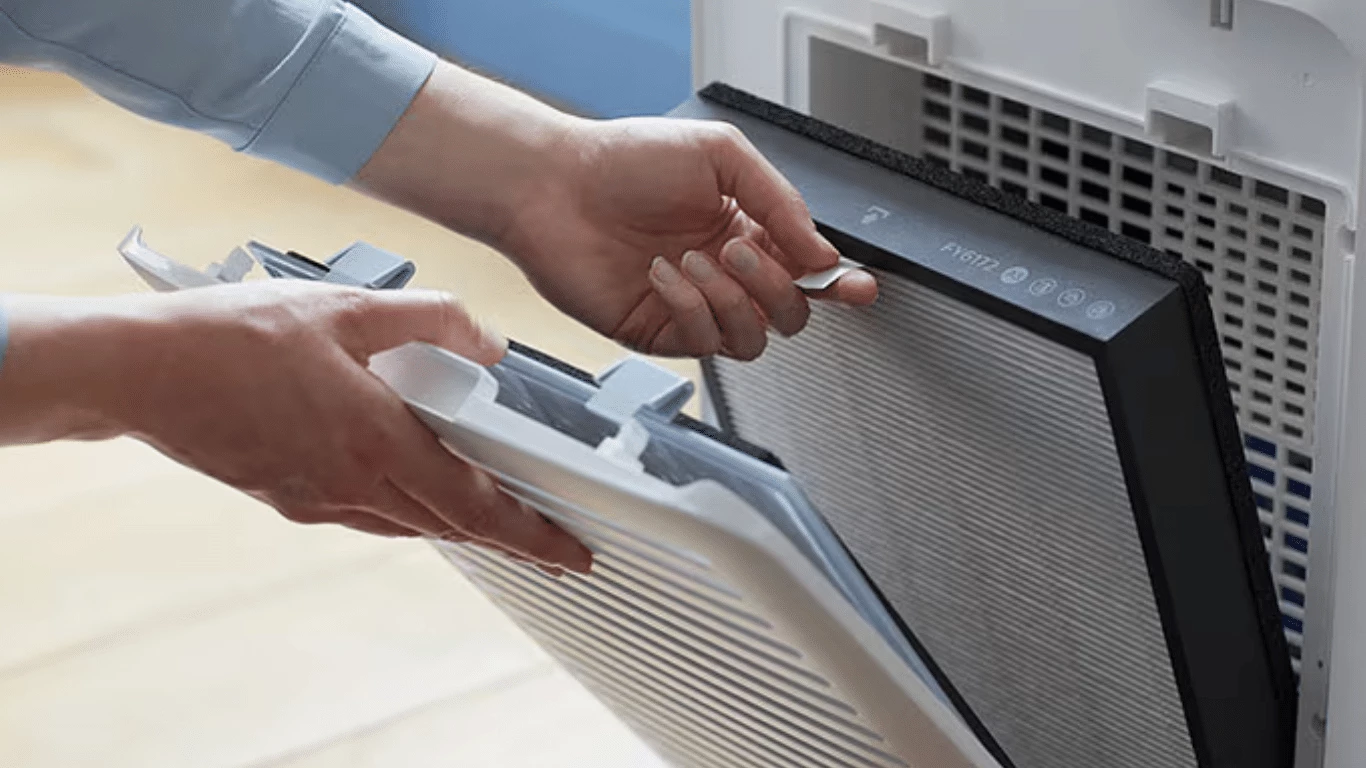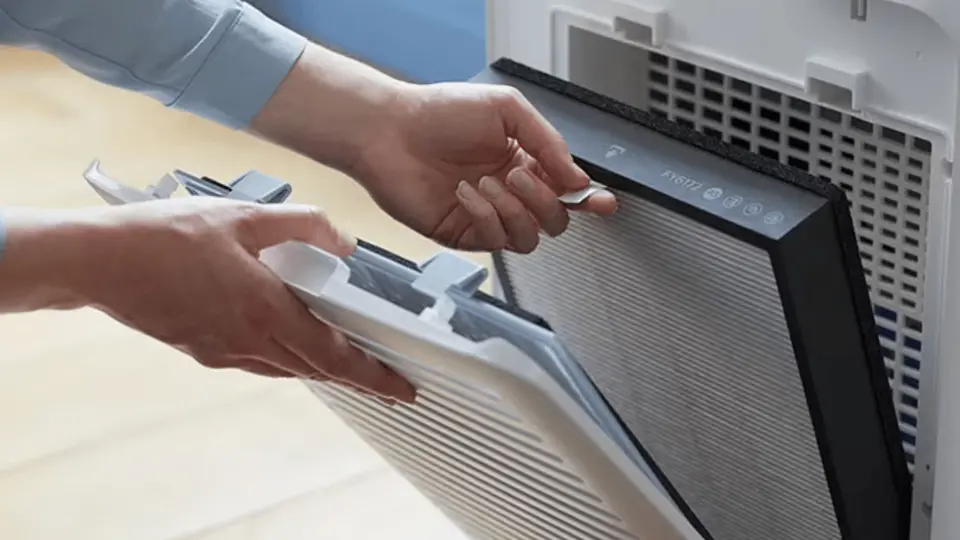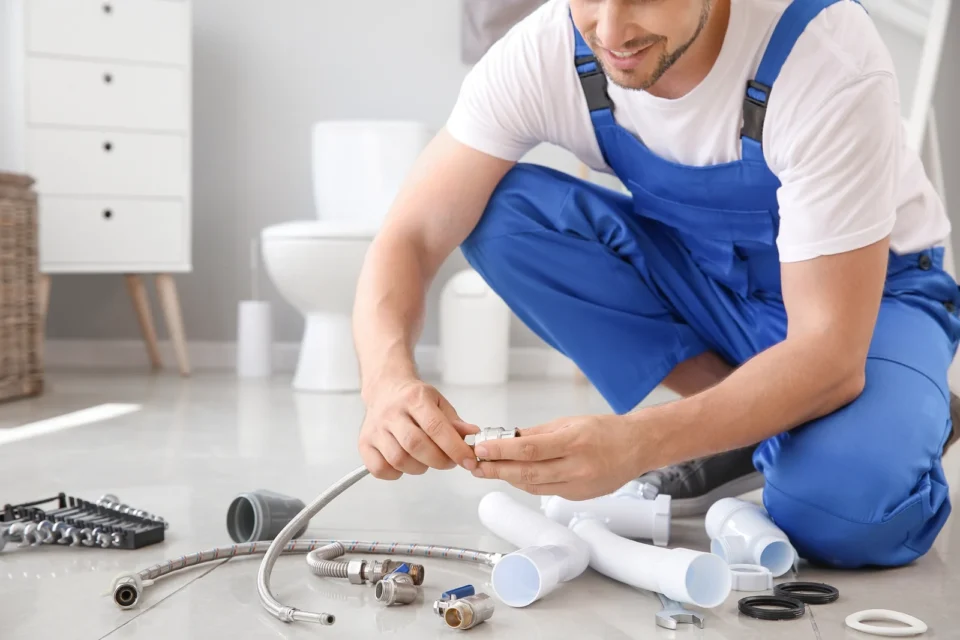Buying a new home is an exciting experience, filled with the anticipation of making it your own. Everything is fresh and new—from the paint on the walls to the appliances and fixtures that are ready for use. But while many people focus on the more obvious aspects of homeownership, like settling into their new space or planning decor, there’s one maintenance task that often gets overlooked: air filter replacements.
Air filters in new homes may seem like something you don’t need to worry about right away, but the truth is, they need to be replaced more often than you think—especially in the first few months or even years.
If you’re new to homeownership, you might be surprised to learn that the air quality and efficiency of your HVAC system can be heavily impacted by dirty or clogged air filters. So, let’s dive into why new homes need more frequent air filter changes, how construction dust plays a role, and how homeowners can manage this task without too much hassle.
Why Do New Homes Require More Frequent Air Filter Replacements?
When you move into a new home, you might assume that the air filters are clean and good to go. After all, the house is brand new, right? Well, here’s the catch: air filters in new homes often need more frequent replacements in the first year, and here’s why:
- Building Materials and Residual Dust: During construction, various building materials such as wood, drywall, insulation, and other substances are used. Even though the house might appear clean, microscopic dust particles from these materials can linger in the air long after the builders leave. Your HVAC system’s air filters, which are responsible for trapping particles, will catch these dust particles, causing them to clog up faster than normal.
- Off-Gassing of New Materials: New homes are often full of materials like fresh paint, adhesives, carpeting, and treated wood. These materials release volatile organic compounds (VOCs) into the air—a process known as off-gassing. While this is common in any newly built structure, it can add extra contaminants into the air, which air filters work hard to trap. This constant influx of particulates and chemicals can overwhelm the filter, leading to a need for more frequent replacements.
- Initial Settling of the Home: Even after the builders finish, the home continues to settle over time. This means dust and particles continue to accumulate as the house adjusts to its new structure. During the first few months, your HVAC system will work overtime to handle these additional particles, and the filters will clog up more quickly as a result.
- System Calibration and Adjustment Periods: New HVAC systems are sometimes calibrated and adjusted during the early stages of use. As these systems work to maintain optimal airflow, they may be more prone to collecting dust and debris in their filters while settling into a steady rhythm. This process requires the filters to be replaced more frequently as dust particles build up.
How Does Construction Dust Affect Air Filters in New Homes?
Construction dust is one of the main culprits when it comes to frequent air filter replacements in new homes. This dust is different from the usual dust you encounter from daily living—it’s a mix of fine particles from various materials used during construction. Here’s how construction dust impacts your air filters and why it’s such a big deal:
- Fine Particles that Clog Filters: Construction dust consists of fine particles that are small enough to be easily picked up by the HVAC system. When the system turns on, these particles are drawn into the filters and begin to accumulate. Over time, this dust can form a dense layer that clogs the filter, reducing airflow and efficiency. As a result, the system has to work harder to circulate air, leading to more strain on the system and higher energy bills.
- Types of Dust: Construction dust can include particles like:
- Wood shavings and sawdust from cutting beams and flooring.
- Drywall dust from sanding and finishing walls.
- Insulation fibers that shed during installation.
- Paint fumes and other materials that off-gas during construction. This mixture of materials means that the filter is working overtime to capture a variety of particles, some of which can be much larger or denser than regular household dust. This creates a perfect storm for quicker filter clogging.
- Increased Wear and Tear on the HVAC System: When air filters become clogged with construction dust, the HVAC system has to work harder to maintain airflow. This can lead to increased wear and tear on the system, potentially resulting in costly repairs or premature system failure. Regular air filter replacements can help prevent these problems by ensuring that the system is running at optimal efficiency.
- Reduction in Indoor Air Quality: Construction dust not only affects your HVAC system but can also reduce the quality of air in your home. Even though filters are designed to trap particles, too much dust can overwhelm the system and lead to poor air quality. This can affect your health, especially if anyone in the household suffers from respiratory conditions like asthma or allergies.
What are the Common Signs That a New Home Needs an Air Filter Change?
Since air filters in new homes can become clogged more quickly, it’s essential to keep an eye out for signs that your filters need replacing. Here are some common indicators that your air filter needs to be changed sooner rather than later:
- Decreased Airflow: If you notice that the air coming from your vents feels weaker than usual or that it takes longer to cool or heat a room, this could be a sign that the air filter is clogged. Reduced airflow is a common consequence of a dirty air filter, which restricts the flow of air and makes it harder for your HVAC system to maintain the desired temperature.
- Increased Energy Bills: A clogged air filter forces your HVAC system to work harder to circulate air, which uses more energy. If you notice that your energy bills have gone up unexpectedly, a dirty air filter could be the culprit. Regularly changing the filter can help your HVAC system run more efficiently, reducing energy consumption and lowering your bills.
- Dusty Air or Excessive Dust in the Home: If you start to notice more dust accumulating in your home, it might be a sign that the air filter isn’t trapping particles as effectively as it should be. Excessive dust could mean that your filter is clogged with construction debris, and it’s time to replace it to improve the efficiency of your system.
- Strange Noises or Odors from the HVAC System: If your HVAC system is making unusual noises, such as rattling or buzzing, or if you detect musty or stale odors, it could be a sign that the filter is clogged. A dirty filter can cause strain on the system, leading to irregular operation or the buildup of mold and mildew in the ducts.
- Visible Damage to the Filter: If you have access to your air filter and notice that it’s visibly dirty, damaged, or clogged with dust, it’s definitely time for a replacement. Don’t wait for the system to start malfunctioning—changing the filter regularly will prevent further damage and ensure proper function.
How Can Homeowners Reduce The Need For Frequent Air Filter Replacements in New Homes?
While new homes often require more frequent air filter changes in the early stages, there are steps homeowners can take to reduce the frequency of replacements and improve their overall indoor air quality. Here are some tips to help you keep your air filters in good shape and extend their lifespan:
- Use High-Quality Air Filters: Opt for higher-quality filters that can trap smaller particles and last longer. Some filters, such as HEPA filters, are designed to capture finer dust and allergens, which can help reduce the frequency of changes and improve the air quality in your home.
- Increase Ventilation During Construction: If possible, allow for better ventilation during and after construction. Opening windows or running fans can help expel construction dust from your home before it settles into your HVAC system. This can reduce the amount of dust that gets caught in your filters and prevent premature clogging.
- Seal Gaps and Cracks: Make sure your home is sealed properly to prevent dust from entering the HVAC system. Ensure that windows, doors, and other openings are properly sealed, and consider using air purifiers in high-traffic areas to help reduce dust buildup.
- Change Filters Regularly: Even though new homes require more frequent filter changes, it’s still important to stay on top of the schedule. Check your filters every 1-2 months during the first year and replace them as needed. Once the home has settled and the dust has been cleared, you can start sticking to a regular 3-month replacement schedule.
- Schedule Routine HVAC Maintenance: Regular maintenance and cleaning of your HVAC system can help reduce the strain on the air filters and keep your system running efficiently. Consider hiring a professional HVAC technician to inspect your system and clean the components, which will help reduce dust buildup.
New homes are exciting, but they also come with their own set of maintenance challenges—especially when it comes to air filters. Construction dust, off-gassing materials, and HVAC system adjustments can all lead to clogged filters that require more frequent replacements.
By understanding the factors that contribute to this increased need for filter changes, homeowners can take proactive steps to protect their HVAC system and maintain clean, breathable air in their homes.
With the right approach, regular filter replacements, and proper home maintenance, you can ensure that your HVAC system runs smoothly and efficiently, saving you time, money, and the headache of unnecessary repairs. Keep those filters fresh and your home’s air quality in top shape!
Keep Your Air Clean and Your System Running Smoothly with Elite Air & Heat LLC!
At Elite Air & Heat LLC, we understand that air filter maintenance is key to keeping your HVAC system running efficiently, especially in a new home. Don’t wait for clogged filters to cause problems—our expert team is here to help you with regular filter replacements and comprehensive HVAC care.
Contact us today to schedule your air filter replacement or HVAC maintenance and ensure your home stays cool, clean, and energy-efficient year-round! Let us help you protect your investment and enjoy a comfortable living space. Reach out now!




